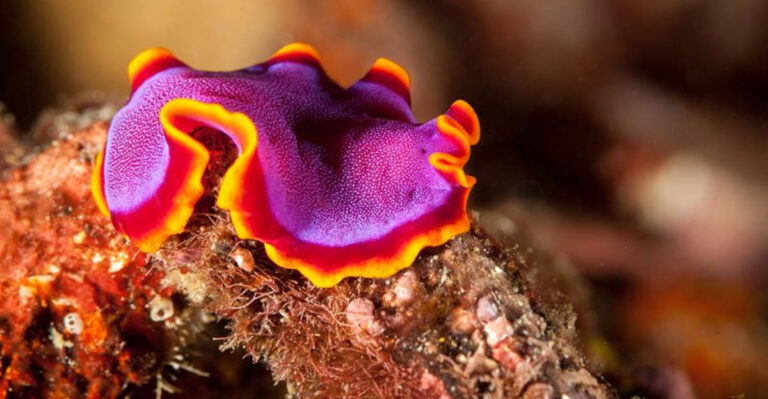How Dogs Are Being Trained To Detect Disease In Humans?
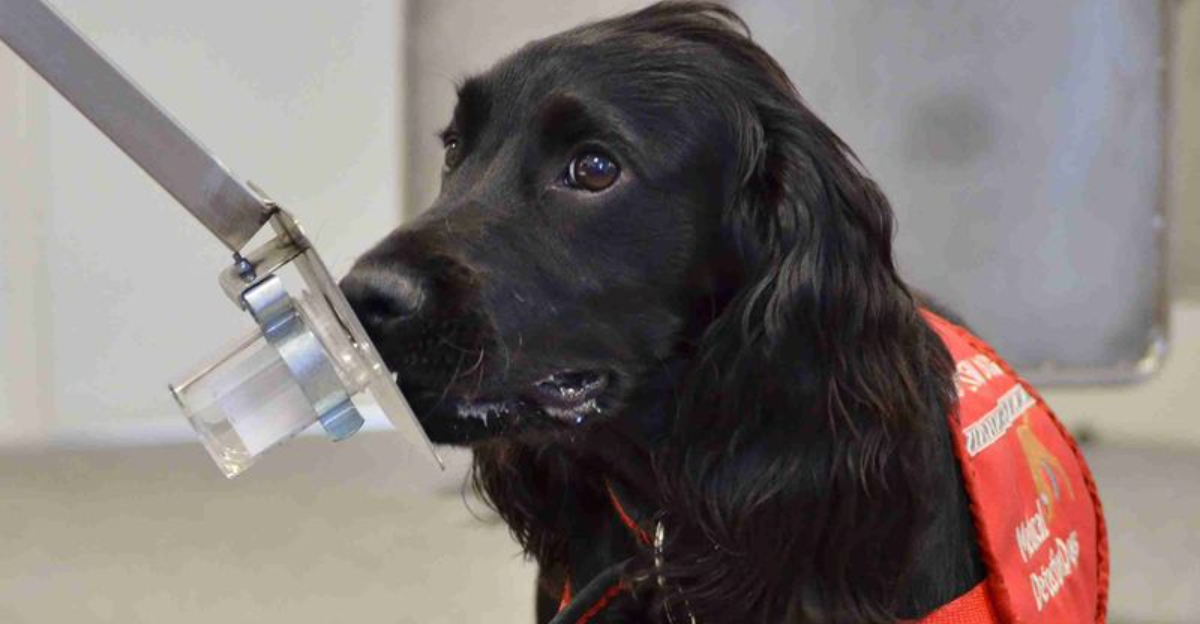
Fancy having your furry friend not just fetch your slippers, but also sniff out an illness? It’s no joke – dogs are being trained to detect diseases in humans with their super-sensitive noses.
From cancers to viral infections, our four-legged pals are stepping up as medical detectives. Let’s explore 13 fascinating facts about how these canine heroes are transforming healthcare.
1. The Sniffing Powerhouse
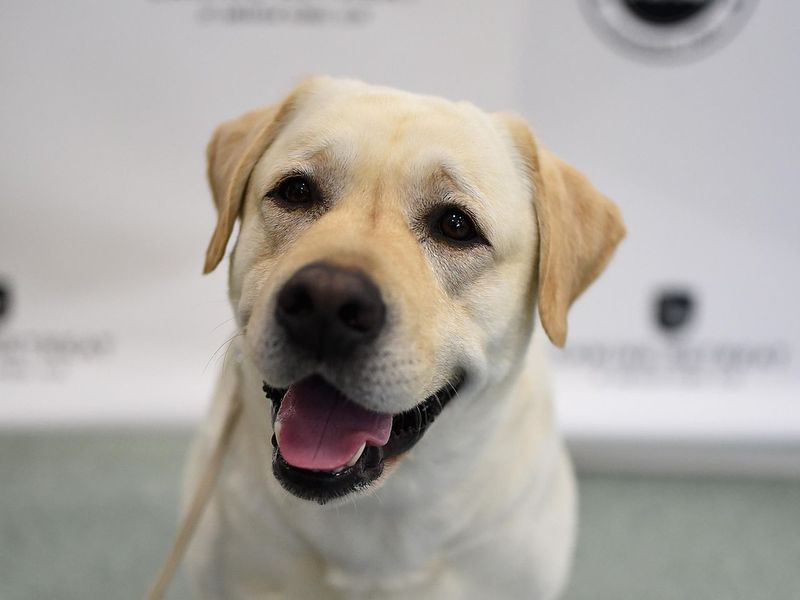
Imagine a nose that can detect a drop of blood in an Olympic-sized pool! Dogs possess up to 300 million smell receptors – humans have a measly 6 million.
This makes their sense of smell around 10,000 to 100,000 times more acute than ours. It’s like comparing a high-powered microscope to a magnifying glass.
Their ability to differentiate smells allows them to detect diseases. Researchers harness this super-skill by training dogs to identify specific scents associated with illnesses.
So, next time your pooch sniffs you, they might be checking more than just what you had for lunch.
2. Training: From Basic To Advanced
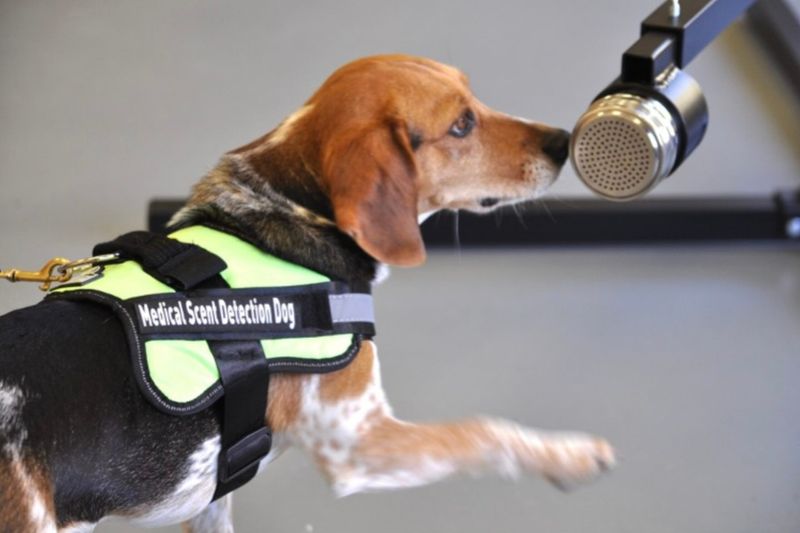
Training these canine cops starts with basic scent identification and gradually moves to more complex medical scents.
It’s like a school progression – starting from elementary to university level. The key is positive reinforcement. Dogs are rewarded with treats and praises for correct identification.
They learn to recognize the peculiar scent of diseases like cancer and diabetes. It’s an incredible journey from sniffing out dinner remnants to life-saving scents.
Each training session is a fun game for the pup, which makes learning enjoyable and effective!
3. A Nose Above The Rest: Cancer Detection
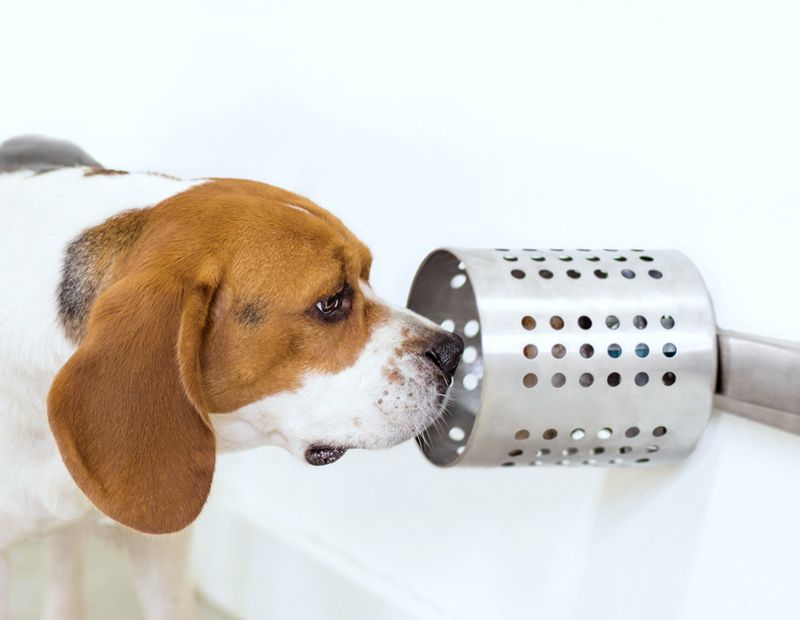
Did you know some dogs can detect cancer at stages where even medical tests might fail? Their noses can sense volatile organic compounds (VOCs) released by tumors.
It’s like having a live-in oncologist, but one who loves belly rubs!
Dogs trained for cancer detection have provided early warnings, allowing for prompt medical attention. These furry oncologists are proving to be an invaluable resource in the fight against cancer, offering hope and companionship in one fluffy package.
4. Diabetes Detection: A Lifesaver At Home
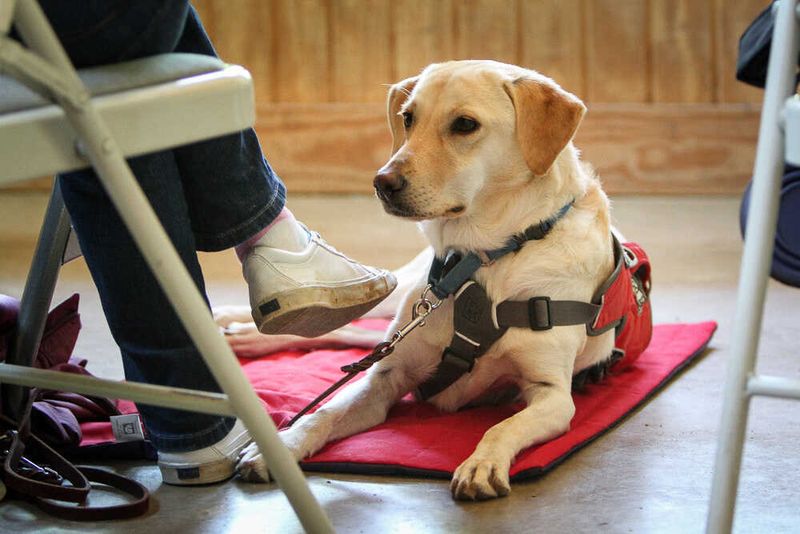
For diabetics, low blood sugar can be dangerous. Picture this: a dog that can alert its owner even before symptoms show. These specially trained dogs can detect changes in blood sugar levels by scent.
They provide not only safety but also companionship, bringing peace of mind to those living with diabetes.
It’s a win-win – a friend and a health monitor, all rolled into one furry package.
5. Detecting Viral Infections: The COVID-19 Case
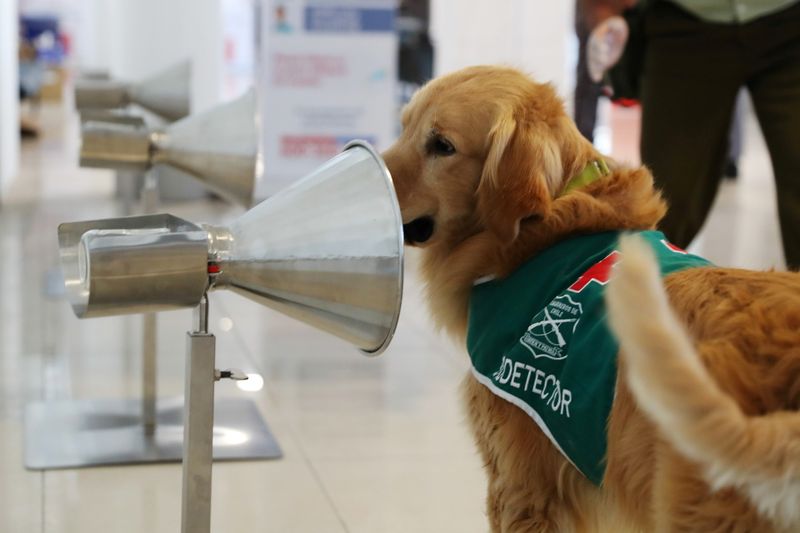
During the COVID-19 pandemic, dogs were deployed at various places to detect the virus. Their noses pick up the unique odor signature of the virus, aiding in rapid screening processes.
Their deployment at airports and public places added an extra layer of protection. While vaccines and tests are crucial, having these canine helpers means another line of defense against viral threats.
6. Paws And Parkinson’s
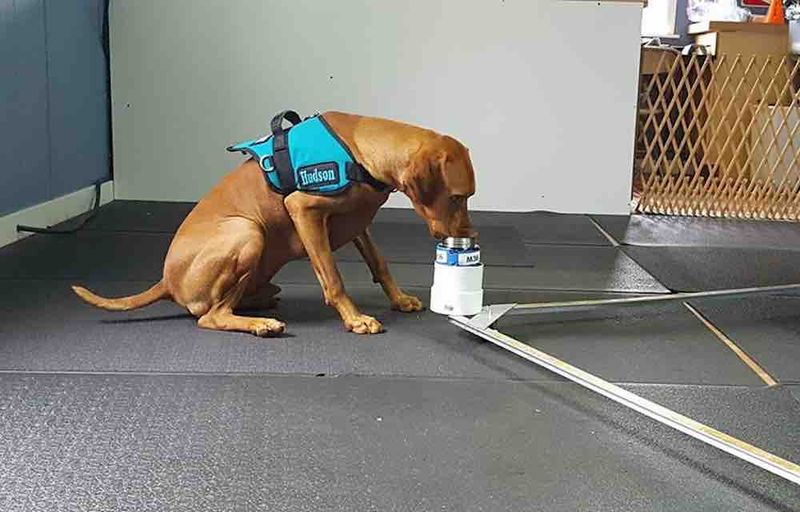
Parkinson’s disease, with its subtle early symptoms, can go undetected. Enter dogs – they can sniff out the disease before symptoms worsen.
This early detection is crucial, allowing for timely interventions and better management of the disease. It’s like having a personal health alert system that loves to play fetch.
7. The Incredible Journey Of Alzheimer’s Detection
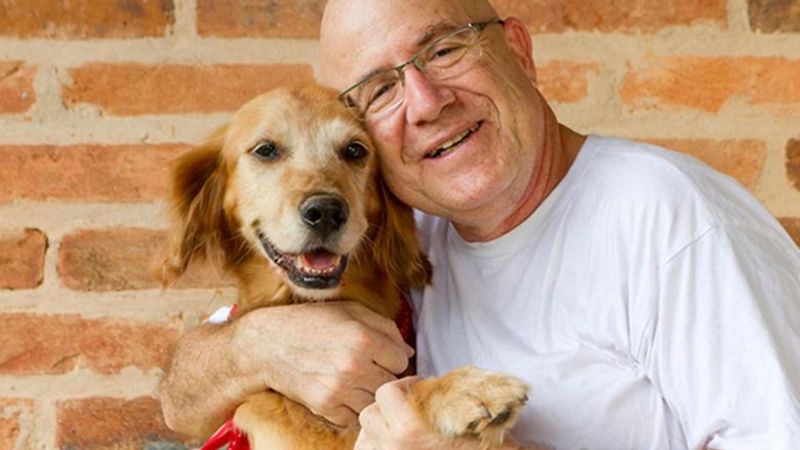
Alzheimer’s is a thief of memories, but dogs might help in catching it early. With their keen sense of smell, they can detect specific markers of Alzheimer’s in the blood, long before cognitive symptoms appear.
These dogs bring more than diagnostic skills; they offer comfort and companionship to those affected by the disease.
It’s heartwarming to see the bond between the patient and their canine companion, offering emotional support through sniff-based early detection.
8. Epilepsy Alert: A True Guardian
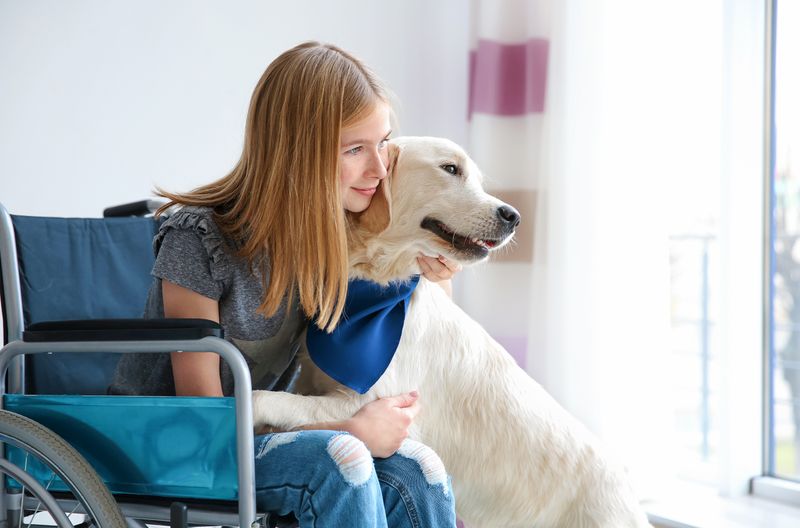
Imagine a dog that can alert you before an epileptic seizure occurs. These canine heroes are trained to notice subtle changes in their owner’s scent before a seizure.
Their presence provides safety and confidence for individuals with epilepsy, ensuring help is always near, even in unpredictable situations.
It’s a beautiful partnership where the dog ensures their human is never alone in facing the challenges of epilepsy.
9. The Scent Of Stress And Anxiety
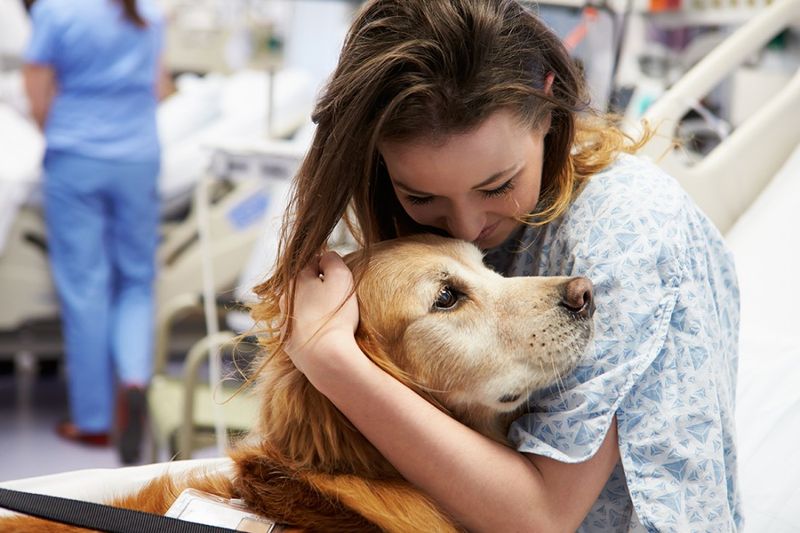
Dogs aren’t just about physical health; they’re emotional healers too. Some are trained to detect stress and anxiety levels through scent.
These dogs offer support and companionship, easing anxiety with their calming presence. It’s nature’s therapy wrapped in a wagging tail, providing relief emotionally and physically.
10. Tuberculosis Detection: Unlikely Heroes
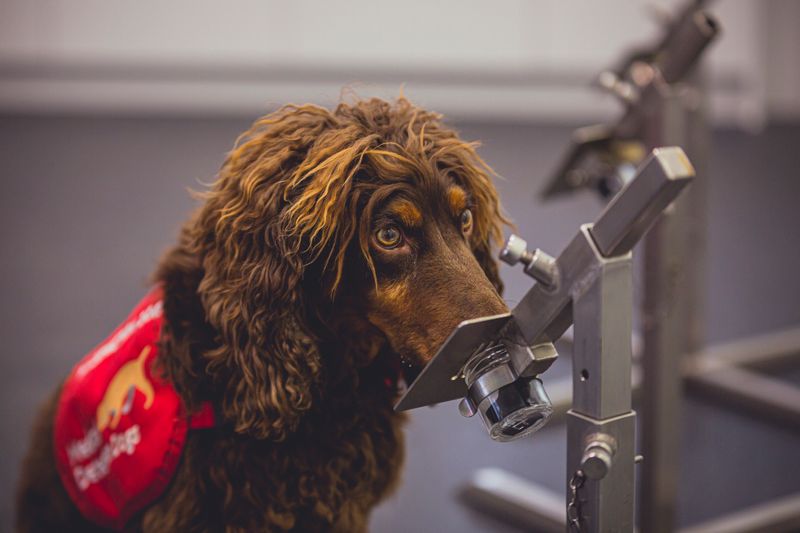
In regions with limited medical resources, dogs are stepping up to detect tuberculosis. Their noses can identify TB bacteria in samples, making them unexpected heroes in global health.
Their work is crucial in early detection, often in areas where advanced medical diagnostics are unavailable. These dogs bridge the gap, offering hope and health where it’s needed most.
11. Malaria Alert: A New Frontier
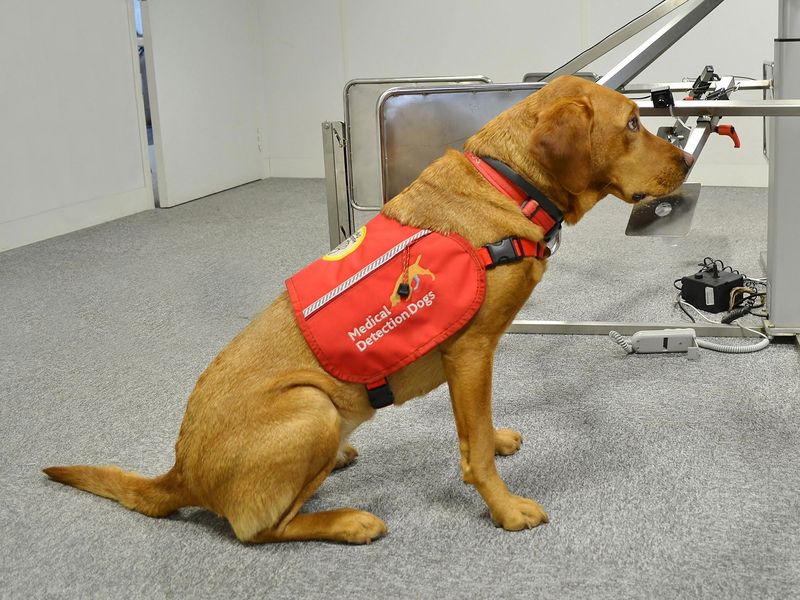
Malaria detection isn’t just for labs anymore. Dogs are now being trained to sniff out the disease from samples. It’s a groundbreaking development in tropical disease management.
Their contributions are paving the way for innovative approaches to malaria control, blending science with nature’s ingenuity.
12. C. difficile And Hospital Hygiene
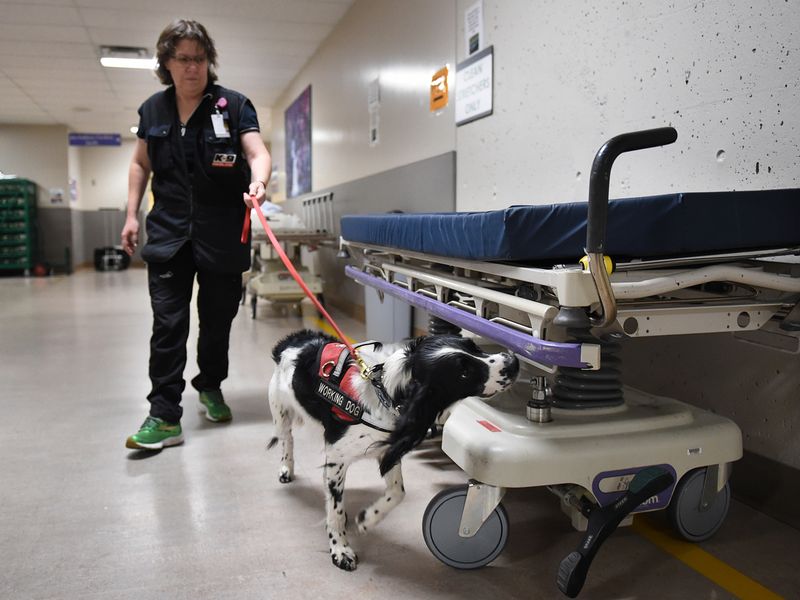
Hospitals are breeding grounds for infections like C. difficile, but dogs are on the case! Trained to detect the scent of this bacterium, they roam hospital corridors, ensuring hygiene standards are met.
These canine inspectors are an integral part of infection control, offering a sniff of assurance in maintaining clean environments. Their work supports healthcare workers, ensuring patient safety and cleaner hospital spaces.
13. The Unseen Heroes: Community Health Detectives
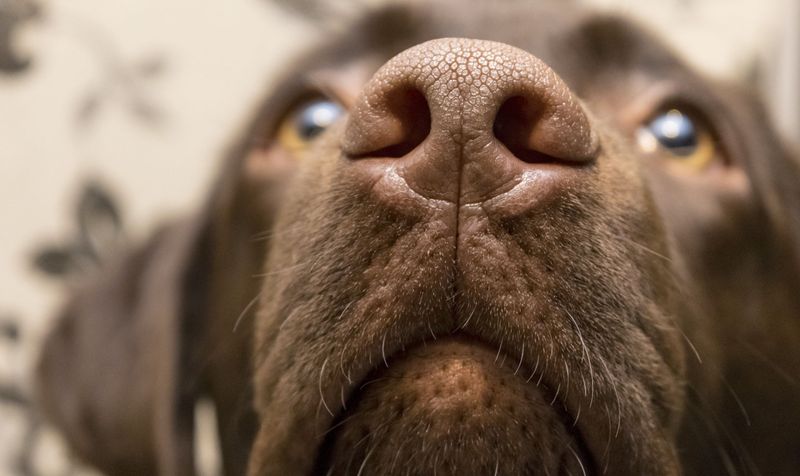
In rural areas, access to healthcare can be limited. Enter dogs – trained to detect diseases, they offer a lifeline to communities.
These dogs are not just pets but partners in promoting community health, showing how a keen nose can make a world of difference. They bridge the healthcare gap, turning wagging tails into beacons of hope.


